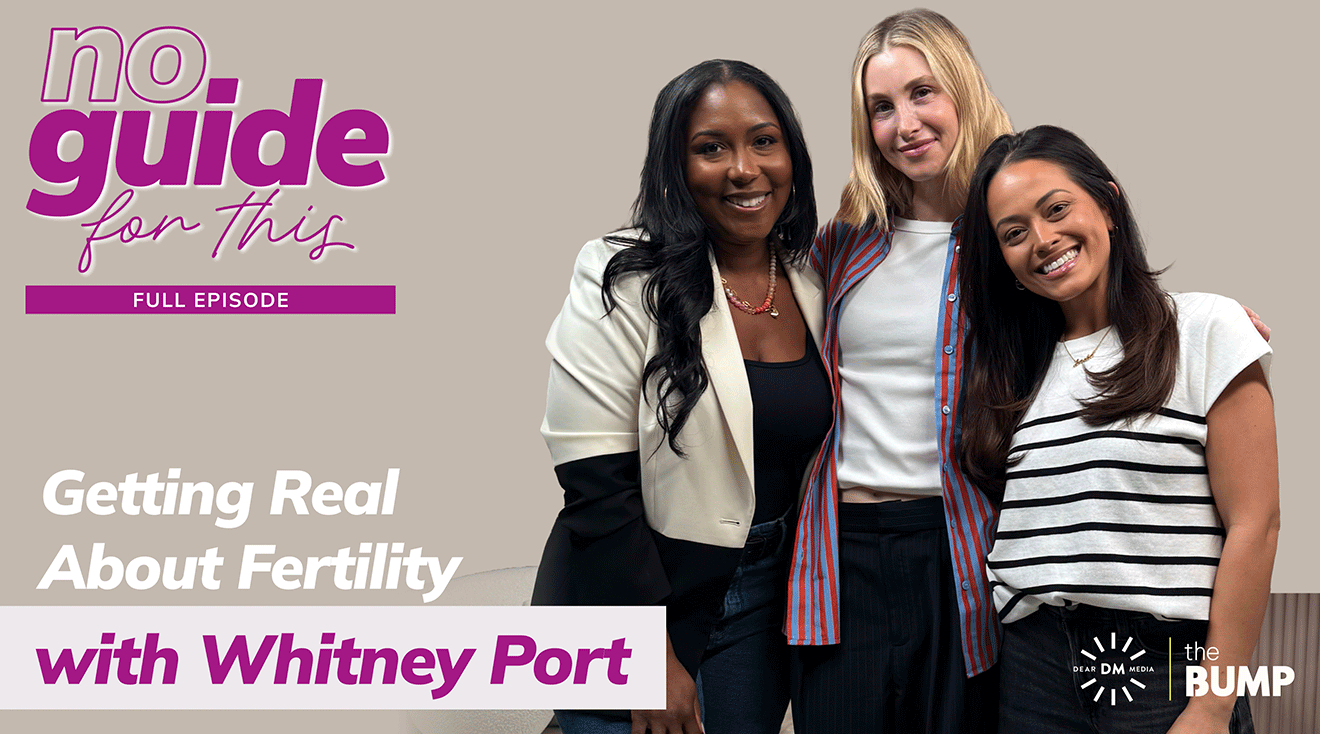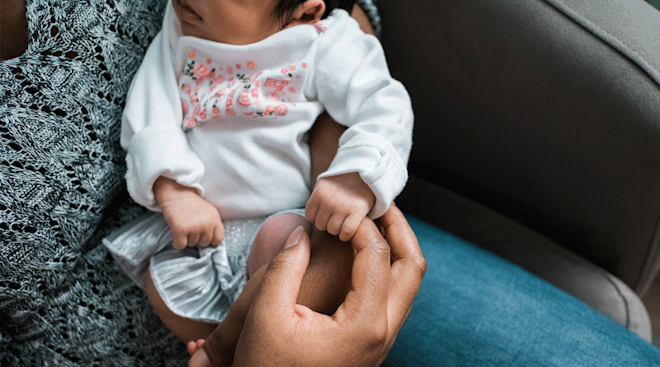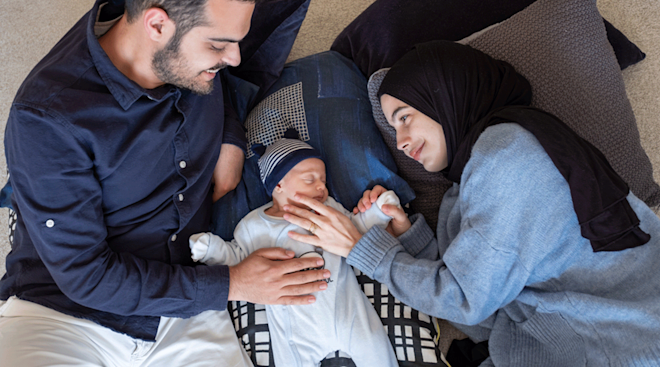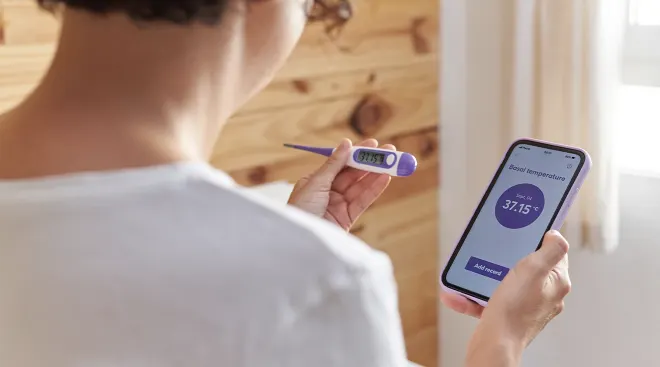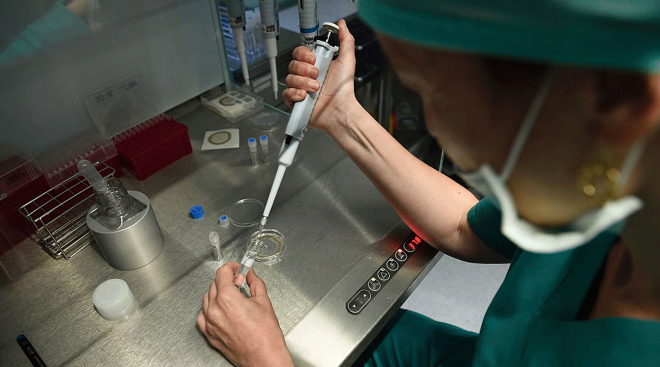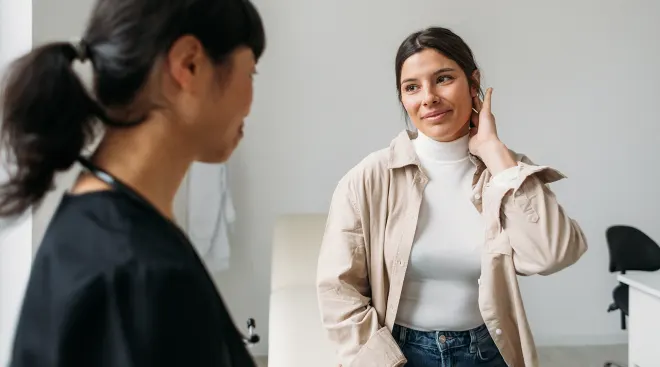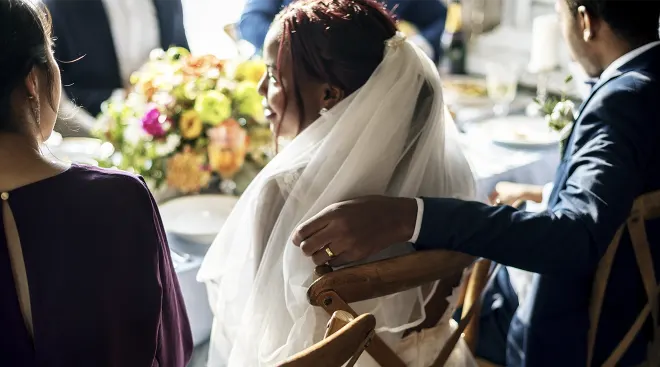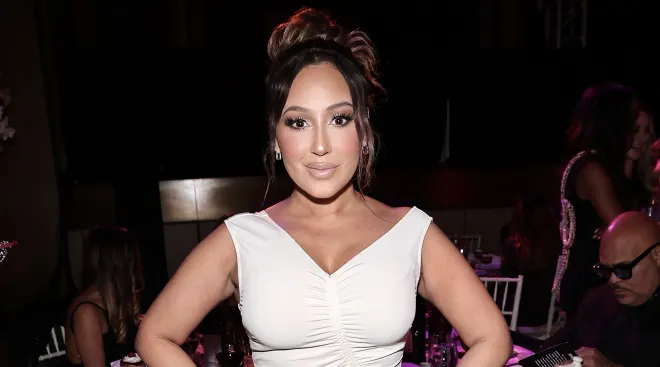‘No Guide for This’ Episode 2: Getting Real About Fertility
No Guide for This hosts Jen Hayes Lee and Sasha Smith sat down with Whitney Port for the vodcast’s second episode to talk all things fertility. The influencer, entrepreneur and The Hills star is mom to 7-year-old Sonny, but she faced some unexpected obstacles after deciding to grow her family. In this candid conversation, Whitney opens up about the emotional and physical challenges she’s worked through, why she and husband Timmy have opted for surrogacy as a path to second-time parenthood and where they are now in the process.
As eager as she is for a second child, Whitney also talks about cherishing moments with her only son and feeling gratitude for the present. She dishes on her vibe as a parent and her approach to raising Sonny, touching on everything from sleep training to social media and how to set healthy boundaries. And the conversation wouldn’t be complete without a look back at her evolving career, how she found her stride and where she’s heading next!
Scroll down for the vodcast video, or listen to the full audio podcast on Spotify and Apple Music.
Whitney Port is a creative director and designer, best known for her role on MTV’s The Hills and The City. She has built a successful career in fashion and design, launching WhitneyPort.com, a curated shopping and lifestyle platform, along with her YouTube channel and podcast With Whit. She also hosts the mini-series Fertility Unfiltered as well as Fertility FM with CCRM, offering candid discussions on fertility. Whitney invests in brands like ByHeart, Perelel and Dae Hair, collaborates with Rent the Runway and serves as Creative Director for The High Confectionary. In 2024, she advocated for gun reform with March Fourth, partnering with The Butcher’s Daughter to support the cause. She is currently based in Los Angeles with her husband and 7-year-old son.
[Lightly edited for brevity]
Jen: Hi, I’m Jen.
Sasha: Hi, and I’m Sasha. And you’re listening to No Guide for This, a podcast about all things parenting and adulting with kids.
Jen: Today we’ve got Whitney Port in this studio with us. Whitney, welcome. Thank you so much. We’re so happy to have you.
Whitney: I’m so happy to be here. I really am. This is one of those things that’s daunting to talk about, but also these conversations need to be had.
Jen: Well, thank you. We have a lot to live up to because not only are you a creative director and fashion designer, but you are a podcast host with with Fertility FM. I mean, you are the seasoned pro, so hopefully we can get a few tips from you today.
Whitney: Oh my God, I’m definitely not a pro. Eve producing here helps, shout out! Honestly, fake it until you make it. Always. I love that saying. Nobody knows. Everybody’s just trying and faking it in their own way.
Jen: It also applies to parenting a little bit, right?
Whitney: Oh, completely. Yeah. I mean for sure. It’s all about just trusting your gut and doing what feels right to you and staying in your own lane. And I think that applies to everything. Podcasting, work, parenting, all of it.
Jen: Love that. And so just to set the stage a little bit, so between Sasha and I, we are sort of at different parts of our own journey. So I’m a mom of three. I’ve got three boys, 5, 7 and 10.
Sasha: Seasoned parent right there.
Jen: Also still figuring it out.
Whitney: Day by day as we go, day by day. You’ve never had a 10-year-old before. This kid has never been 7, your last one has never been 5. They’re all different. They’re all different kids. How would you know what you’re doing?
Jen: You’re my people. Exactly, I’m with you.
Whitney: I feel like every stage of parenting has just been a phase, and you try to master the phase that you’re in—and as soon as you master it, you’re onto the next phase. So you just have to release control with it all.
Jen: And the learning never stops.
Whitney: Never. Okay, so you have three kids, three boys.
Jen: Three boys.
Whitney: Insane and intense.
Jen: Intense but fun. Sasha’s in a different phase.
Sasha: Yes, I like to say not yet a parent. I’m on that journey. I’m in the trying to conceive stage. I got married three years ago, so we were prepared to just take our time, and then after about a year we started to realize, why is it not happening? So we had to have those conversations and really being vocal about what’s next. And so we got serious for the second year, took our health seriously, timed things and tracked my ovulation and had to get all the tests done. I feel like I was poked and prodded everywhere. And so we’re on that next step of taking certain medications to help ovulation and things like that. And so we’re in that phase before we’re doing IVF and the more serious, very scary things. And then we’re also talking about, if it doesn’t happen, do we want to do that? Or maybe do we want to adopt? Do we want to just stop and just say maybe kids aren’t for us?
Whitney: So many things. It’s so many things and it’s like, what could happen? The mishmash of things that could happen is endless, and your mind will spin thinking about all the different outcomes that could possibly happen. I think the best advice that I could give you right now, not knowing all of the details, but that all you can do is stay in this moment, and when your mind starts to spiral into the future about what if this and then what if I have to do with do IVF and what if this, it’s like when you have to cross that bridge, you will have the tools to get there, but you’re not there yet. So just focus on the task that you have at hand, the hormones, the medications that you’re taking, taking care of your body, really trying to calm down. I do feel like, listen, I haven’t been successful yet with the second, so it’s not like I know the answer, nor does anybody. But I do think that stress and us spiraling about that stuff can have an effect on our bodies in so many different ways. We see it and you don’t realize how much the stress and anxiety can affect. It can affect it on the day-to-day and you don’t notice you’re even doing it completely until you have to go, okay, let me ground myself, be in the now. I’ll take it as it comes. Like you said, cross the bridge when we get there completely. And I think that you also have to think about your future self and about possibly that, I don’t know whether you even want to call it, worst case scenario. I don’t even think that that’s likely what it is. Maybe at times it feels like that. But thinking about, okay, and when it gets to that point, working on becoming at peace with that, with what happens. And tuning into, as cheesy and cliche as it sounds, gratitude for what you have. But I can’t even imagine how hard it is, because for me, I had one and then I had the fertility struggles. At least I still have one. That’s why I feel so guilty about full secondary infertility stuff and talking about it. It is one of those things that you can feel guilty about complaining like, well, you already have the kid, but I want the life that I envisioned and that’s okay and I’m allowed that.
Jen: You have to be able to have gratitude and a desire to realize what you wanted.
Whitney: Completely. But it took me a while to get to this point, after the one and then dealing with all the fertility issues, it took me a while to get to. I’ll be okay no matter what. I am so grateful for where I’m at. And now literally two days ago, Sonny was like, I don’t really actually want a sibling. He’s 7 now, and so in his own world that he doesn’t want to share anything. He’s starting to see what the dynamic actually is. Yeah, he’s like, life is good. We just got a puppy three weeks ago. So he sees how our attention is divided, shifted, and how exhausted we are, and he gets it. I was for so long stressing that he was so devastated that he didn’t have a sibling and that he was always the one that was feeling left out. And now to have this moment of clarity from him and it’s like, I didn’t even know we would ever get to this place. And now it’s like he’s at peace with it too. And why did I stress for so long about him wanting a sibling so badly? Of course, he’s 7 years old and he doesn’t exactly know all his deepest desires or what a sibling will actually mean to him. But it’s just like I said, it’s been an evolution of phases. And now my coping mechanism is really just to stay in the journey that I’m on and not the problem.
Jen: Oh, I love that. I mean, so many questions. I know Sasha has a million about fertility. And your career and just getting here has been crazy. We grew up with you as well, and so there’s just so much that we can get into. But should we go to our segment: Can’t Make This Up. Sasha: It’s a fun little icebreaker segment.
Whitney: Okay! Sasha: Great. So I work in marketing and social media, so of course I see some really crazy things all over social, especially with celebrities. But I wanted to talk about something that I saw The Rock had posted with his two daughters. It’s about him getting a makeover, and I feel like he’s done a whole bunch of these.
Whitney: Oh, I saw this. It’s so funny to see him getting made over and just embracing Girl Dad, very girl Dad. And him being the Rock.
Sasha: I know, it’s just such a funny thing. So I just wanted to talk about it. Have you been made over by any kids? What do you think about this?
Jen: And also the little girls who are watching videos on YouTube—the tutorial makeup space, it’s getting younger and younger.
Whitney: Well, that is a different level of concern that I have than the daddy makeover with the makeup because I think that is fun. And I think that being a girl dad is a big responsibility and just being open to them in whatever they want to do is so huge in raising young girls. I do have two 10-year-old nieces, one who’s very into the whole Sephora craze of having the new products and it’s really the lip products that are crazy. Her mom won’t let her wear any makeup. But I think that your parenting is so much outside of that. I think that if you’re parenting in the appropriate way outside of that, that the makeup and all that stuff isn’t going to be an issue, and have boundaries with it. Just like you have boundaries with everything else that you buy your children, you’re not buying them new stuff all the time. I try to think about, okay, so when I was 13 or whatever, I feel like I started getting acne and that’s when I started going to Longs Drugs, which was my CVS at the time, and getting Wet ‘n Wild and my Neutrogena concealer and my Covergirl mascara and stuff like that. And I remember that being a thing for me, and my mom would let me wear it on certain occasions. But by no means was there any anti-aging, any skincare happening at that point besides the acne that I had to deal with. But yeah, that whole thing, I don’t know. I am so relieved to have a boy at this point.
Jen: It’s so funny. I feel the same way because I’m like, oh goodness, if my boys were into this, I can only imagine what the Sephora bills would be like.
Whitney: Oh my gosh, obscene. It’s up to us to set those boundaries.
Jen: Thousand percent, thousand percent.
Whitney: Parents complain about their kids having these obsessions and having all this stuff, but who’s setting the guardrails here? It’s up to us. And having these conversations about skincare and about the marketing and about the level of thought that goes into targeting them. It’s important to have those conversations. They’re going to want it and you’re going to want to get certain things for them, but they just need to understand the basis of what they’re buying into. Jen: Yeah, there are so many influences. And we haven’t even mentioned their friend influences.
Sasha: Their friends have it. Well, that’s the biggest social media now too. I didn’t grow up with social media, so I can’t imagine now the influences they’re having with their phones and TV and just having it all in their face so much now.
Whitney: Yeah, I haven’t had to deal with that yet. I mean, he’s 7 and he’s pretty confident. I remember there was a trend a couple months ago that was going on with those stickers. It was just a sticker thing that all these kids were wearing. And I was like, I wonder if Sonny’s going to ask me. And he didn’t. And I was really happy because he was like, no, I don’t really want that. Not into it. I think that we’ll deal with that when we get there. But honestly, I think that because someone else has it doesn’t mean that you automatically get it, that you have to have it. Every family has different rules and you just have to continue to say that.
Jen: It’s a good reminder because sometimes it’s easier to just say yes and give in, but you do have to be disciplined. So it’s a good reminder. We had a little bit of a similar situation. I just have to mention it since it’s coming to mind. So not beauty, but that was happening with the first graders in my town related to Stanley Cups. You know how kids bring water?
Whitney: Oh my God, all the bottles happened to me too. It happened to my son and my niece as well. It was so crazy. I don’t know, what was the deal with Stanley Cups?
Jen: I don’t know what it was, but one of my girlfriend’s daughters, who was in first grade, there was this whole thing, and the kids got mean girl about it.
Sasha: Stop.
Jen: So of course my girlfriend was like, oh, hell no. So she first gave the speech about the fact that Stanley Cups don’t define you, all of that. And then of course she’s like, I’m going to the store. I’m going to buy her every Stanley Cup I can find. She was like, they’re not going to put baby in the corner about the Stanley Cup.
Whitney: I mean, there are certain things that you want them to have that everybody has that are completely healthy. And then there are other things like the cell phone and playing video games and the boundaries there that you have to tune into your own comfort zone with.
Jen: Totally.
Sasha: I can imagine it being hard when the kids are getting certain things at school and then you’re trying to set your boundaries and say, well, I don’t want them to have it until a certain age. But now all their friends are getting it and they’re coming home with it.
Whitney: Honestly, it hasn’t been that hard yet. I feel pretty good about sticking to my guns. And also my school has had a pretty amazing philosophy. They sent this out in kindergarten, which was this waiver to sign. It was called Wait Until Eighth, where everybody signs it and you essentially are signing up to not give your kid a cell phone or use social media until 8th grade. Jen: I like that. That’s different. So a social pact, a different type of honor code. I love that.
Whitney: Exactly. Which was really, really refreshing and nice. And so I’m totally with that. And Sonny will have to deal.
Jen: Yeah, I love that. So speaking of all the parenting things and the new encounters, was there an assumption that you had about motherhood that has changed now that you are a mom seven years in?
Whitney: I just feel like I had no idea what it was. I just feel like I looked at my mom who did it and there were five of us, and it felt very, very seamless and easy. And she never complained. It was always like, oh, the five of you. But then, granted, I’m realizing she had my grandparents that were living with us, so then there were two other hands on deck. And also there’s that amnesia that you go through after you have a baby and have kids.
Sasha: I’m hearing about that.
Whitney: You forget how difficult it is, and you only remember the good stuff. It’s the same after a breakup and you just miss them terribly and you can’t remember why you ever broke up. So I always was just like, okay, it’ll be easy. We’ll do it. And I also have that attitude where I don’t think too much, I’m not a type A person or think too deeply about something where I feel like I now need to prepare and know everything and have everything researched. And I’m very much like an “ignorance is bliss” kind of girl who just deals with it as it comes. And then once I got pregnant, which was super easy, I started feeling sick, and that’s when I was like, oh shit, this is harder. This is going to be a lot. This is the first time for me where I really feel out of control of my body. And so it was a lot.
Jen: Oh wow. When you got pregnant, did your friends have kids? Were you the first? Where were you in the sequence?
Whitney: I was one of the first. I was 32 years old. My friends tell me that that felt like a child’s bride at the time. I was the first one doing it, which is really refreshing just because it feels like women are more and more focusing on themselves and what they really want and putting not even careers but just putting themselves first, before they’re willing to share it with someone else. Also, I’m not someone that reaches out to a million friends and is like, what did you use and what did you do? And how did you feel? When I go through things, I kind of just go through them on my own.
Jen: Even with four other siblings?
Whitney: I went to a couple of them, but even then, I don’t know what it is. I just don’t feel this need. I think Timmy serves that purpose for sure. And sometimes that can be a lot for him, but I don’t feel this need for some reason. And so I got pregnant and I started feeling shitty, and then that’s when I started really feeling like, wait, am I the only one that feels like this? I cannot be the only person out there that feels like this. And Timmy, who I had met, he was a producer on the show The City that we were filming in New York. He had his producer hat on and was like, I feel like if you’re feeling this way, we should film it and you should talk about it and just put it out there. And I’m sure someone else is feeling this way. And I was like, okay, well we can film it, but let’s think about it, let’s see what we get here. And I remember I was in my crusty robe, eating yogurt in my bed, glass of half drank chocolate milk, so gross, just being like, I can’t get out of bed. And I started talking about just how I was really doing. I finally decided to put it out there and was so scared that everybody was going to think that I was a monster. And it turned out that it was the beginning of those conversations where you’re really sharing how you felt, as ugly as it felt to you, and it was so helpful for others—it gave people a breath of fresh air that they could gasp in. So that was really a shift, a huge shift for me in my identity because I physically couldn’t take care of myself. There was nothing I could do to make myself feel better emotionally. I was scared of what this felt like.
Jen: But obviously there’s such an audience for that because clearly you were not the only one feeling that way. And I think the interesting thing about you being central to that is that so many of us feel like we grew up with you, as I shared, when you were going through from The Hills, The City and having your first job as an intern. I feel like we went through those growing pains, those coming of age moments.
Whitney: It’s so true. It’s like, when people say to me that they grew up with me, I always think to myself, they grew up watching the show. They grew up watching the show as I was on it. And then, as you just said it, a different part hit me where it’s like, you didn’t just grow up with me watching the show. You grew up alongside me through all my trials and tribulations and wins and failures, and as you were going through yours at the same time in your life as well, which brings us really close together.
Jen: I remember watching you and being like, I would be this type of intern. I was like, I’d be the Whitney type of intern and identifying from that perspective. I think there are really cool inflection points that you went through. That’s why we feel like we grew up with you, and then again now that you’re on your motherhood journey, your fertility journey, it’s cool that we get to kind of feel closer to that and it sort of taps into our identity.
Sasha: Completely. You really represent going through the work of finding yourself, finding your identity. Before, I think other generations were getting married young, having kids, and that was a lot of women’s identity. But just kind of taking your time with it, finding yourself, even being with your partner for a while before starting a family, I think is really nice. How did that happen for you? You and Timmy met on The City. Did you take your time before trying to have kids? Were you guys very intentional about wanting to start kids at a certain age or was it accidental?
Whitney: So basically Timmy and I met when I was filming The City, and it was very much like, I was going to say a torrid love affair, but it wasn’t that. It was more like Romeo and Juliet. We couldn’t be together because he was a producer on the show and I was cast on the show and I couldn’t date a producer. The show was filming my real life. People were finding guys for me to go out on dates for the show, and you’re looking at him by the camera. And it was love at first sight when I met him. He was making somebody laugh and I heard what he was talking about, and I think it was about Real World, which is very niche.
Jen: That is a moment in time for real.
Whitney: And I was such a big fan. He was making someone laugh about CT or something. And I remember asking him for his phone number. He was the location producer. He was in charge of finding all of the clubs and my apartment, everywhere that we needed to shoot in New York. So I got his number. I was like, it’s for work. Anyways, long story short, we finally got together when the show was canceled. I had moved back to LA, The City was over and I was single, and I was like, I felt this calling to him. So the next trip I had in New York, we got together and we just clicked. We became official, and we have been together ever since. He moved to LA. Six months later he moved in with my two sisters and the four of us lived together for a year and a half. During that time, my dad got diagnosed with stage four cancer and then a year later passed away. So he was here in LA helping me grieve through that whole thing. And we got married then a year after, two years after my dad passed. So anyways, the whole thing was we dated for about two years. We were engaged for two years. I couldn’t make a decision about where I wanted to get married. Also, my dad had just passed and it was hard. I need to just have some time to think about what I really want this day to be. And so we were engaged for two years and then got married, and then we got pregnant a year later. I went off my birth control and three months later got pregnant.
Sasha: Wow.
Whitney: We weren’t timing it or anything.
Sasha: And just organically happened in the time that it was meant to. You mentioned something about your pregnancy being hard?
Whitney: Well, the first 18 weeks were awful. Awful. Morning sickness all the time, though I wasn’t actually throwing up. I wished that I was because after you throw up, you feel better, I believe. I never had that. I was just constantly nauseous and felt like I needed to keep my belly full with just the grossest things ever. And so I was just eating and feeling gross and feeling nauseous and gaining weight and it was not a fun experience.
Sasha: And I feel like not the pretty experience you kind of picture or assume you’re going to have. You’re not skipping through the fields.
Whitney: Completely. I let that kind of tint the whole experience. I was just like, I just want it to be over. I just really want it to be over. But after 18 weeks, the nausea started to lift and I started to get my energy back and I started to become more at peace with the weight gain because you’re creating a human. At first I was so self-conscious about it, and I think that those beginning stages are really the hardest for women because it’s like you can’t really tell and you want people to know and your body is just bloated and awkward. It’s just that weird thing.
Jen: You’re doing the handholding, like, I swear I’m pregnant! I’m not just bloated. That was such a surprise. You’re like, when is the bump going to actually form?
Whitney: And sometimes for your first one, it doesn’t form for a while. All the other parts are growing as you’re trying to feed yourself everything. Literally all the other parts. And your belly is just this weird pouch. But it’s like I said, radical acceptance. Someone taught me that phrase five years ago, and I feel like it’s used every second now. But with that, there’s no other option or else you’ll be miserable. And this is such a natural thing that’s happening to your body. I remember I was stressing out when I first got pregnant, I started getting these red broken blood vessels all over my chest and they lasted my entire pregnancy. And I went to doctors and I was like, should I get them lasered off? And everyone was just like, let’s just wait until after your pregnancy. And the day I had Sonny, they all went away.
Jen: Wow, isn’t that wild? The things that happened to your body. I mean, it’s so different between people. It’s never the same.
Whitney: I was just talking to someone who is just recently pregnant for the first time. And the hard part is that you want to talk to people and find out what people are doing. There is that human urge to connect and want to know what people are doing. But then you start to do that and you start to realize that everybody has opinions and everybody’s experiences are different and everyone’s kids are different and some experiences are really scary that most likely will never happen. So then you’re like, wait a second, do I need to be having all these conversations and getting all these opinions? And I think that point is when you start to develop your team of trusted people, whether that’s a best friend who has been through it and remembers, or your pediatrician who you rely on for everything. And then just really trusting your gut.
Sasha: Yeah, I like that.
Whitney: And just having a very edited support system so that you’re not so confused and insecure about what you’re doing.
Jen: Totally.
Sasha: And sometimes there’s information overload, but then the questions of everyone wanting to know every step of the way what’s happening, and you’re like, I don’t even know what’s happening today. You might even scare yourself a little. I feel like that when I hear a lot of things. I mean, especially working on The Bump and I see articles popping up and I’m just like, what happens when?
Whitney: And all these things, they can happen, but they may not happen to you, so why spend the time stressing about it?
Sasha: So going into your infertility, that happened after your first child?
Whitney: So that happened after my first. The thing is, I have never been diagnosed with any secondary infertility, and I haven’t gone down every route in order to get pregnant because I hit a rock bottom for myself. Also just physically and emotionally trying so hard that I was like, I just don’t think I can do this anymore. And so we’re going the surrogacy route now, which has been a huge relief for me. Something that I feel very privileged to be able to do and was so scared to even talk about the fact that that was something that I was considering. But now we’re down the road a little bit. We’re right now at the point where I got sent a profile last week of a possible surrogate. So we’re interviewing people at the moment. I have the embryos—I have three boy embryos. We had two girls and already used another surrogate already two summers ago, and both of the transfers failed. So we started with a new doctor. I think for me it was very much a fresh start fresh—new doctor, new round of IVF, new surrogate, just really throwing all the variables up there and hoping that something sticks. So now we’re interviewing, which is weird, but interviewing is critical. Of course, you have to get that feeling about someone. I just want it to be a safe, cozy space. I’m not the type A person that’s going to be like, this is your diet and I want a diary of what you’re doing and how much you’re walking and what you’re eating, and are you sleeping with anyone? What’s your relationship status? I can’t be in that much control—that will drive me crazy and I don’t want to do that. There are certain non-negotiables, of course, the basics, but it’s really just about energy. Just the energy that is going to grow the baby.
Jen: Well congratulations to you, because even getting to that place is a huge deal. Just the sort of mental weight of saying, you know what? We are going to try this other path. Whitney: Yeah, it’s felt like that. I really do finally feel at some peace with it, where I feel so grateful to be able to do it, but also if none of these three embryos work, I am probably just going to be a one and done.
Jen: And you’re okay with it? You’re going to accept it?
Whitney: I think so. I feel like for the phase that I’m at in my life, I’m about to be 40. I know age doesn’t matter and Giselle’s 47 and just had a baby or whatever. It’s not about my age, honestly. It’s about where I’m at emotionally and spiritually and what I feel like I have the capacity to do, and what I will have the capacity to do in a couple of years. The IVF process, it takes a lot out of you. It’s also one of those things where I look back on it and I’m like, okay, I could do it again. But I remember being in it saying to Timmy, I never want to do this again. And I only did two rounds of it.
Jen: Oh, I get that.
Sasha: I can see it’s so tough—all the energy that goes into it. That’s the next step if we were to do that. And I just can’t imagine the injections—it’s so much on a woman. Sometimes it feels like the woman’s problem that we kind of have to take on and do this and change our whole world upside down for a little bit to have something that both of us want. Why do I have to do it completely? Why? Why the woman?
Whitney: I know, it’s a lot of that. It’s a lot of knowing that they can’t and them still being supportive of you, but also feeling a slight bit of resentment about the situation. And it can make you a little bit angry and frustrated, which is completely normal. And I think it’s important to feel those feelings and then turn into them and feel them so that you’re not pushing them down, and then allow yourself to move out of them. But the IVF process, I will say I just did it in August. I have an amazing doctor in New York who is just the best and will hold your hand through everything. And I never felt confused and I always felt like I knew what was next and I felt like everything was being tested for, and that was my second experience with it. Not that my first doctor did anything wrong, but there just can be sometimes a connection, the right fit, and you have to look at your doctor and think about them in that way as opposed to just the referral or their success rate. I mean the success rate is also very, very important. But you want to think about the person that’s really going to be guiding you through. If your gut is telling you this just doesn’t feel right, there are other options. You can source resources somewhere else completely and keep waiting. Keep looking until you say, okay, this feels good for me.
Jen: The referral is interesting. So did you have a trusted referral? Some friend? Whitney: I did have a trusted referral, and still. This doctor that I went to my first time is an amazing doctor and my friend just had a baby with IVF through him. It’s nothing against him; he’s an amazing doctor and I adore him. His bedside manner is incredible. And you can always say this as a Monday morning quarterback. The hard part with all this is that everybody has something to teach you after the fact, after something has already gone wrong. But I think for me, I would not choose someone that’s a yes person. I would choose someone that does a little bit more digging and a little bit more testing. Everything was always left up to me a little bit too much. Well, how do you feel about it? You’re the expert. I need some odds here, man. It really nice to have that kind of support, but that’s not what I need. It might suit someone else super in control or knows what they want—like, don’t tell me, no, I’m going to do it this way. But I second guess a lot. He was a little too overly optimistic. My surrogate, the first surrogate, was 39 years old, which now I’m like, well Whitney, why did that sound good to you? I’ll feel guilty about it and be like, what was I thinking? And then I’m like, well, why would my doctor, who screens them? And there were things after the fact that were in her medical records that weren’t thoroughly looked through.
Jen: Yeah, I’m just like you, but with doctors, with hairstylists, with makeup artists, I don’t want to tell you what I want. Tell me what’s going to make me look amazing or yield the result that I want.
Whitney: It’s so true. And a hairstylist will love you because you let them do their thing. Their worst nightmare is when you come and you show them a picture. It’s like, well, you look nothing like this person. You don’t have that hair, your color, everything. I’ll give it to you, but you’re not going to be happy. With my new doctor, there were so many questions she asked me and so much digging and so much more testing, even on Timmy’s sperm, that wasn’t already done.
Jen: And second time out, you were more informed and you know what you wanted it to feel like. Which is hard, knowing how to course correct a little bit.
Whitney: Yeah. It’s like that’s the hard part though, the learning experiences after the fact. But that’s life. Jen: And it’s also not cheap.
Whitney: No, it’s not.
Sasha: That’s probably why we haven’t gone that route. Also, the thing for us was, what if it fails and now I’ve just spent all of our savings?
Whitney: Oh my God, I know. And the guilt. And then could you even do it again? It’s just so scary to spend that kind of money with no real guarantee.
Whitney: Right? Then there’s the stress that’s on top, the financial piece that adds to it doesn’t help the body do its thing either. It’s hard. I mean, I know I would say for young women out there who are looking for jobs and thinking about this, work at a company that has these kinds of maternity benefits and insurance for those kinds of things. And some have great policies for freezing eggs.
Sasha: I feel like I some have IVF coverage. Or they pay a certain amount, which, like you said, can really help if your company does do things like that. And I feel like a lot are going in that direction and understand.
Jen: It’s wonderful that that is now a thing. I agree, I think if you’re a young woman, those should be questions that you’re asking HR when you’re going through the interview process because literally every single woman that I know that has taken advantage of those benefits, not one of them has regretted it. So I mean, why not? If you’re going to help me with preventative care, help me preventatively optimize my family planning outcomes.
Whitney: Right. Yeah. And I think it’s also for, I mean, anyone listening, business owners, just having the conversation that as you’re thinking about your company, the health of the emotional status is really important to women and these conversations need to be had.
Jen: Yeah. So just bringing it full circle a little bit, Whitney, I love that there are now platforms that people can connect with you, whether it’s through social or your podcast, to still continue to take this journey with you. Would you ever return to reality TV?
Whitney: It’s so funny you asked that. Someone texted me, I had such a hot flash yesterday. It was the talent executive from MTV who I dealt with for 10 years. I was on MTV. She texted me and I was like, oh my god, what is this? I immediately had anxiety. And it’s funny, she was actually looking for a job here at Dear Media. She was head of talent at MTV and she took some time off. She was so stressed. Anyways, the point of the story is no, no, no. Pass. Part of it sounds fun, but then if I had to have my family involved, no, it’s just no.
Sasha: That’s what I was going to ask. Is it like a family thing? You don’t want your child growing up around that?
Whitney: I don’t. Even if Timmy produced it. I think a little digital series based on fashion stuff or things like that, I would do. But reality TV, I don’t know. What could you see me on right now? What would be a show that you could see me on?
Jen: Well, so you’re from LA, raised in LA, still living in LA. You’ve got this big family—are your siblings here also?
Whitney: They’re all here.
Jen: I mean, I think there’s this sort of, are we doing a Kardashian moment bringing all the siblings in? I feel like I know at least a couple of you are doing cool things and I don’t know, I feel like we were talking about the spectrum of millennials, and there are so many of us that are in this life phase. I don’t know, I think there’s a lot to be learned about what it means to be empowered and choosing your own path and tackling the stuff that’s hard and the stuff that’s delightful. I don’t know. I’m just saying I would sign up to watch you watch in this next chapter.
Whitney: That’s so sweet. Yeah, I mean I do think there is, maybe not with me, but there is a space for a show that’s not as salacious and gross as Housewives, but that shows cool women doing cool things. How The Hills and The City were. Even though The City and The Hills, they still had drama, but it wasn’t like we were yelling or flipping tables. We were being sassy with each other because she said she styled the look for the cover and she didn’t. But I see that. I feel like there is space for that.
Sasha: I did like that that’s how you were on reality. You weren’t the one just creating drama for the sake of it. I felt it was very organic and if you didn’t like something, it was because you genuinely were like, okay, I need to speak up about it, but it’s not because the TV’s on or the camera’s on and I need to just make a scene because I want airtime. It never felt like that when you were on it. And I loved it.
Jen: You mastered it. You mastered how to do it in a way where the show wasn’t running you.
Whitney: Yeah. That’s so interesting you say that because the fights that I had to have before shooting every scene, the conversations with the producers, and I’m not saying they were all fights, but just the manipulation and how exhausting it would be going into filming the scene. I had to constantly be protecting myself, thinking about how what I was going to say would possibly be edited. And I am proud of myself that I was an advocate and that I stood up for myself at such a young age with all these producers, these 30, 35-year-old male producers at the time. But I also wish that I just let loose a little bit more and just say what you wanted to say, didn’t bite my tongue as much.
Jen: But it seemed like you had your stuff together, which I think was a good balance. That is sort of like the memory. It’s like she had her stuff together. So this is a quick little quick fire. Just want to know which option you prefer. Work in New York or LA?
Whitney: New York.
Jen: Why New York?
Whitney: I mean, I would move to New York if Timmy would go. I feel a different level of motivation there, and I don’t know if it’s just because when I’m there, I’m only there for a certain amount of days and so I can go, go and get it done. But there’s just something about it. I don’t like car culture and I don’t like making plans. And in Los Angeles you have to be okay with both of those things in order to have any kind of life. And in New York, I just feel like I could, when I was living there, I could just walk out of my apartment without any plans and just walk around and figure out something to do or run into someone. And I don’t know, if it weren’t cold, we would definitely live there. But Timmy, he loves LA. He grew up in the city. He’s loving this life here and 75 degrees. He’s from New York.
Sasha: That’s what I thought. You’re from here, but you both want to swap cities.
Whitney: Exactly. At some point when Sonny and possibly the next one are out of high school, we’ll leave LA. I’m not staying here to just go from the big house and downsize to a cute little apartment in New York. Like that, that or even go, who knows? At that point maybe I’ll be ready for a lake or something. Jen: Oh, I love a lake. Okay, well we kind of covered this, but film a TV show or record a podcast?
Whitney: Record a podcast. Right now it’s all about podcasts. We’re in it.
Jen: Okay. Would you rather write a book or launch another fashion line?
Whitney: Oh my God. Launch another fashion line! Writing sounds exhausting to me. I really have an idea for a fashion thing that I want to do. It’s so hard, so oversaturated with celebrity-led brands and collaborations and product lines—it just feels like everybody’s doing something. But I sort of have this idea for something where each month (and someone’s going to steal it) I design different drops that are a complete look, but they’re also worn separately. But they can vary. It could be a trench, a pair of boot cut jeans, a cashmere sock and a loafer. And I give you the idea for how to style it all together. But you can also just buy one of the pieces, and each month is just a limited outfit drop.
Jen: I love that. So it’s like a monthly drop that’s sort of a core capsule.
Whitney: Yes. But I don’t want it to be so basic and essential where it’s like a people’s core because everyone’s doing that. I want it to still have my touch of something different. So if I do a puffer, it’s like an orange puffer.
Jen: And people know that they can identify it as a part of your line.
Whitney: Exactly. So I don’t know, I’m thinking about it. I’m talking to people. I don’t think that I want to do the rat race of seasons again and designing for collections and trying to get into retail, but we consume so differently now. It’s so easy to make anything these days. Jen: Yeah. We both have Shopify’s.
Whitney: You both have brands in the trenches of Shopify? What are you guys selling on Shopify?
Sasha: Jewelry. Whitney: Amazing.
Jen: And I have a jewelry line.
Whitney: Stop it!
Jen: We talk about that. Like, have you done a TikTok shop yet? Have you done this yet? You on Amazon after work hours? We’re like, okay, let’s swap the tips.
Sasha: That’s been really helpful, honestly. But like you said, everyone can create something on the side, like a little side hustle or part-time work and learn these things on your own. There are so many resources. But 10 years ago trying to start something brand-new, you needed a lot of capital. You needed experts, you needed website designers.
Whitney: Yeah, you didn’t know where to go to get them. Now you can find everything online. I think it’s really important to have some sort of hobby or side hustle. Something that you love that maybe eventually could actually be your job.
Sasha: Something you love that brings in money so that it doesn’t feel like you’re working. That is the dream, completely.
Jen: And I feel like one thing that sometimes we discount is that at this point you’ve been working and in it for close to 20 years. So you have experience in what’s working. You’ve been around the block, you’re seasoned. And I mean that in the most positive way. You can connect dots and do the things.
Whitney: I feel that. I feel that, but I feel like I’m finally coming into my power where I’m realizing that I can. I always sort of knew I could and I knew I was creative and I believed in myself, but it’s like now I just know with life experiences and my age that literally anything is possible that we want to make it happen.
Jen: You’re turning that corner on 40, right?
Whitney: On Tuesday!
Jen: Oh, that’s exciting. So we have to know, are you doing anything big to celebrate your 40th? Whitney: Timmy and I are going to Mexico. Birthdays are the best. They really are. My dad passed away the day before my birthday, and so for the first couple of years I was home with my family and everyone was together. And then after that I was like, this is so depressing. Why do I have to do this on this day? I would just have all this anticipation for the day, and then my birthday would suck and I would have an emotional hangover on my birthday anyways. Not to be like woe is me that my dad died before my birthday, but I just decided I’m going to leave town. This is my new tradition and it just feels really nice.
Jen: Love that. So we have a few more This or That. Gender reveal or keep it under wraps?
Whitney: Under wraps. We didn’t even find out gender until he was born.
Jen: How did you do that though? No planning the nursery and the color?
Whitney: It’s so chill.
Jen: So you didn’t find out because you were chill?
Whitney: Timmy didn’t want to find out either. Someone had said to us that it’s one of the only surprises in life that you could ever have.
Jen: That’s true.
Whitney: And I didn’t think of that. That sounded nice. And so I was like, okay, let’s go for it. I think gender reveals are cute. It can be cute. Whatever floats your boat. If you want to have a celebration, go for it. I was so relieved when Sonny was a boy. I remember because actually it wasn’t even about the boy/girl thing, it was just because we had a name for a boy and no name for a girl and I was like, thank God. I don’t want to think any harder. But wait, what was the question I had?
Jen: It was gender reveal or keep it under wraps.
Whitney: Oh yeah, keep it under wraps.
Jen: Got it. And that makes sense because you weren’t a crazy neurotic planner, so you weren’t like, I have to know.
Whitney: No. And I wasn’t going to do blue or pink for the nursery anyways.
Sasha: You were just gender neutral?
Whitney: Yes. I did a pretty cream and white wallpaper. And a light wood crib.
Sasha: Did you have a prediction? Did you think it was a boy or girl?
Whitney: I had no idea. Some feel like they know. I feel like I had wondered if I had known if it was a girl or boy, if I would’ve connected to the pregnancy as a whole a little bit more. So definitely I’m curious about that, but I had no idea.
Jen: I get that. Okay, sleep training or let it flow?
Whitney: Sleep training.
Jen: Okay, so that’s sort of a type A thing.
Whitney: Yeah. That’s interesting. That was basically just like you can’t handle it anymore.
Jen: Survival!
Whitney: Survival. And honestly, it didn’t end up being as bad as I thought it was going to be, thank God. I think it was six months in and we did cry it out. And then it’s been different transitions of sleeping routines since now the bedtime routine is an hour long and I have to wait until he falls asleep. It’s like tippy toe out—the things though you do sometimes. Because he’s an only child. I have the time. I have the patience, and I feel like the nighttimes are the times when I connect with him the most, so I’m there for it.
Jen: That’s sweet. And you find your pockets, right?
Whitney: Completely. I have patience at bedtime for some reason.
Sasha: You’re the bedtime parent.
Whitney: Yeah. He now is reading. So we sit and he reads to me, even though he just reads so fast and doesn’t enunciate any of the words and speaks so monotone.
Sasha: It’s still so adorable because at some point they’re going to grow out of all these cute little things Whitney: Well that’s why. I have one child and I’m feeling gratitude for that. I want to hold onto these moments. I don’t know if I’m going to have another 7-year-old again that I’m going to get to cuddle.
Jen: We’re wrapping up, but I love this conversation. So much fun. So just at the end, we like to ask all of our guests, what’s the one trait that you hope that you pass down to your son and possibly all of your kids in the future?
Whitney: I think the first thing that came to mind when I was thinking about this question was just being kind to strangers, not only kind to strangers, but kind to everyone and just leading with kindness. I just feel like I have tried to do that. My mom, it’s kind of annoying, but she would always smile at a stranger. That’s my mom. And I remember watching my grandfather too, just always making connections with whoever. And I think that that level of care will just get you so far.
Jen: I love that so much. And the world needs a lot of kindness right now.
Whitney: Right? Completely. And just patience for whatever anyone is going through.
Jen: Yeah. That’s incredible. Whitney, this is so amazing.
Whitney: I know, this is so great. Thank you. I really love being a guest.
Jen: Well, you’re an amazing guest. Thank you so much for being here.
Whitney: Thank you for having me.
Jen: Yes. And we hope that you’ll come back.
Whitney: I will for sure!
Navigate forward to interact with the calendar and select a date. Press the question mark key to get the keyboard shortcuts for changing dates.

































